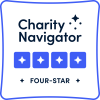Become a Member
As a member of GBCA, you will not only gain access to wonderful benefits, but you will also become an active participant in a broader cultural community. Your organization and employees will directly benefit from opportunities to collaborate, connect, learn, network and share with your colleagues in the cultural community. Join our growing constituency of over 300 individual artists and organizations representing the region's extraordinary range of arts, culture, history, heritage, humanities, and attractions.


